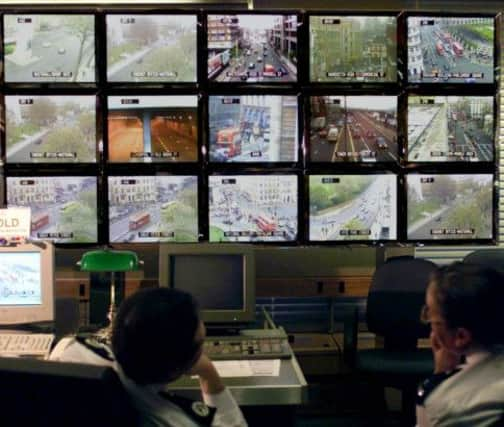Plans to close six police control rooms revealed


Police Scotland wants to close six control rooms – which handle emergencies and direct police responses – with the loss of up to 212 jobs. The plans will be debated by the Scottish Police Authority next week.
However, critics have already told how they fear cost savings and a centralisation agenda are being put ahead of improving the service.
Advertisement
Hide AdAdvertisement
Hide AdThe Scotsman revealed in October last year that two-thirds of the country’s control rooms were under threat.
It follows the merger of eight forces into one in April, and the announcement that 62 public police station counters are set to close, with many others having their opening hours reduced.
Police currently have 11 control rooms as well as seven mothballed sites held in reserve, many of which could now be put up for sale. The centres handle telephone calls from the public, including emergencies, and direct the response of police on the ground.
Call handlers also advise people over the phone and collate intelligence to be passed on to investigating officers.
Critics of the move say the closures could lead to 999 services being “less responsive”.
Police Scotland estimates between 155 and 212 jobs will go as a result of the change, although it says it has 325 notes of interest in voluntary redundancies.
The changes would save just £1.1m next year, but up to £4.8m in 2015-16, and £6.8m in each of the two following years.
By 2026, the force believes it will have saved between £46.6m and £73.7m. Overall, the new single force is tasked with saving
£1.1 billion by that date.
Advertisement
Hide AdAdvertisement
Hide AdThe control rooms earmarked for closure are Dumfries, Glenrothes, Glasgow Pitt Street and Stirling, as well as two in Aberdeen. It is proposed that Govan, Motherwell, Bilston Glen in Midlothian, Dundee and Inverness remain open.
There are concerns the savings targets, which were imposed by the Scottish Government, are dictating the direction of the new service.
Gerry Crawley, regional officer for Unison, which represents police staff, said: “These closures are not about making our communities safer. They are budget-driven cuts.
“We are concerned that 999 and 101 services will be less responsive and local communities, having lost police stations across the country, will see even more local cuts. Police Scotland will lose a lot of local knowledge.
“After telling us what a good job police control centres do, they now tell us they need to shut them to save money. They cannot have it both ways. This is further centralisation – local people will feel less safe.”
Political opponents last night said they were concerned about the loss of local accountability and control over the way police protect communities.
Alison McInnes MSP, Lib Dem justice spokeswoman, said: “It is not an exaggeration to say this is a dark day for Scotland’s emergency services.”
Scottish Conservative justice spokeswoman Margaret Mitchell MSP added: “The control rooms provide a valuable frontline resource to ensure incidents are dealt with as swiftly and efficiently as possible.”
Advertisement
Hide AdAdvertisement
Hide AdPolice leaders defended the changes and denied they will have a negative impact on the service to the public. Chief
Superintendent Val Thomson said: “This will allow us to put the individual at the centre of our service and quickly identify vulnerability, enabling us to provide a quicker, more
appropriate response.
“The changes will be introduced incrementally, allowing us to monitor each one closely and ensure that public service is not impacted on during the changes. Once complete, this change will improve the service our communities receive.
“Most importantly, the officers attending incidents will be the same officers, working from local police stations, who have extensive knowledge of the local area.”
Ch Supt David O’Connor, president of the Association of Scottish Police Superintendents, added: “The reduction in control rooms makes sense in terms of efficiency, economy and modernisation.”
The reform of the police has mirrored changes in the fire service, which also moved to a single organisation in April, and is shifting to just three control centres in Johnstone, Edinburgh and Dundee, with Aberdeen and Inverness to close.
A Scottish Government spokeswoman said: “The final decision on police and fire control rooms will be made by the Scottish Police Authority and the Scottish Fire and Rescue Service board, based on detailed business cases prepared by each of the services.
“Reconfiguring the work of control centres will improve the way emergency services respond to calls and incidents, reduce
Advertisement
Hide AdAdvertisement
Hide Adduplication and ensure resources are better directed to the frontline.
“The geographical location of control rooms has no impact on the service members of the public in local communities receive.”
SEE ALSO: